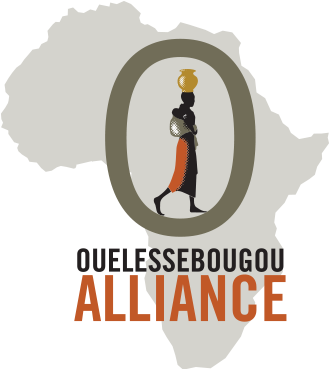Our New Malaria Initiative: How It Began
It all started with a catastrophe on an Air France flight from Paris to Bamako. As I got on the plane, I was attempting to store my backpack in the overhead compartment when a laptop fell out and crashed to the floor of the airplane. All of a sudden, the gentleman behind me began to scream in a thick German accent, “What are you doing? You broke my laptop!” The commotion resulted in the flight attendants trying to calm down the German, him threatening to sue Air France, and me feeling very bad for the man. After everything had settled down, I apologized again to the German, and he responded, “The problem is with Air France, and not you.” After a long, tiring, and eventful flight, I was waiting in the customs line in Bamako when someone tapped me on the shoulder – it was the German. Much to my relief, he attempted to make small talk by asking me about my business in Bamako. I explained that I was with the Ouelessebougou Alliance, an NGO headed to the Ouelessebougou region, to look after our humanitarian projects. He gave me his business card, telling me it was crucial that I meet him in Bamako for lunch. I didn’t know at the time, but this man, Dr. Gunter Muller, would be one of the most important men that I ever met.
Taking this man up on his offer for lunch was the least of my concerns. But, two days later, I found myself having to travel up to Bamako, and I decided to giver Dr. Muller a call. He told me to go to the U.S. Embassy, where his driver would take me to his house for lunch. As we were heading to lunch, the driver introduced himself as Dr. Mohammed Toare and he asked me if I knew who I was meeting with. As it turns out, the angry German I met on a plane was the world’s leading expert on malaria. Over a lovely lunch, Dr. Muller asked if we knew that the Ouelessebougou region was one on the most adversely affected areas by malaria in the entire world. He went on to explain his many malaria research projects, and his desire to implement a western-style mosquito abatement program in Southern Mali. He explained how this project would be in the forefront of malaria research, and how no big-name donors were willing to take on his groundbreaking project. He asked me, in conjunction with the Ouelessebougou Alliance, to handle the fundraising and implementation of his project with his only wish being that he got the opportunity to write the research paper once the project is completed. He explained that the University of Bamako would handle the research and the social interaction with the villages. Being just retired, I had absolutely no interest in taking on this massive project.
After returning to the States, I received an email from Dr. Muller inviting me to a mosquito abatement conference in St. Augustine, Florida. Personally, I did not want to go, but my son Eddie encouraged me to attend mainly due to the nice Florida weather in March. Of course, he made it obvious that he wanted to go with me. Due to Covid-19, the conference was cancelled, but my interest remained peaked. More than myself, Eddie saw the vision of mosquito abatement in Mali, and he encouraged me to continue to put my full efforts into this project.
Later in March, it occurred to me that I pay taxes towards the Salt Lake Mosquito Abatement District, and that I should make an introduction. I drove out to their office out past the airport and toured the facilities. To say the least, I was impressed. I made an appointment to meet the Executive Director, Dr. Ary Faraji. A few weeks later, I met Dr. Faraji and I explained our project. He explained that there have been efforts to implement mosquito abatement in Mali for years, and asked me why I thought our efforts would result in anything better.


